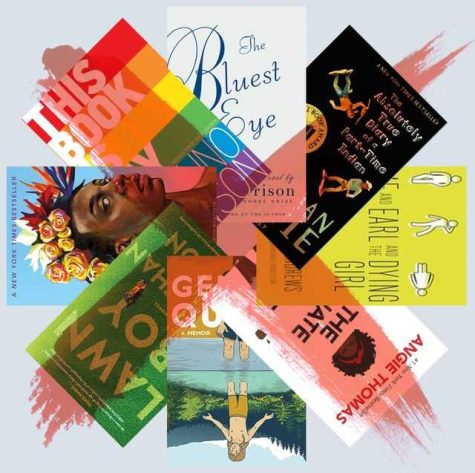Kids read less than in the past

The common trope of students in this century is the downfall of reading books due to ‘video games and Instagram’. “I have found that students enjoy reading less in my experience from the rise of technology,” commented the Edison Intermediate School (EIS) ELA teacher Mrs. Ciampa. However, while packing truth this idea is not the complete story.
The fact that children in the modern day enjoy reading less on average is not just baked in the experience of an ELA teacher. Instead, it is roasted in the flames of an academic paper in a peer reviewed journal. In an article in the Guardian from 2020 about a study focused on children reading habits commented that “The work, to be published by the National Literacy Trust in the run-up to World Book Day on Thursday, shows that in 2019 just 26% of under-18s spent some time each day reading. This is the lowest daily level recorded since the charity first surveyed children’s reading habits in 2005” (Fergurson).
In other words, students’ reading time has decreased in the past decade. If 26% of under-18s spend time reading each day, then 74% of kids do not read on a regular basis. These numbers are often attributed to kids screen time, as mentioned by Mrs. Ciampa up above. A study published in the journal Psychology of Popular Media found that “Use of digital media increased substantially from 2006 to 2016. Among 12th-graders, internet use during leisure time doubled from one to two hours per day during that period” (Sliwa).
A 200% increase in time spent on something for an average is no joke. That is a drastic rise in the use of technology by students. However, correlation does mean truth. If that was the case, then the amount of movies Nicholas Cage appeared in leads to the deaths from drowning in pools.
However, a question still remains. Why is it that kids are reading less than in the past? This conundrum has an answer. “Books lack interest. If I do read, I prefer more realistic books, and if not books, videos. Videos are more interesting” commented 7th Grader Dylan Singer. In other words, the problem is attention. Videos on the internet provide so much attention and information that they eclipse books. Just as the sunlight drowns out the stars, videos provide so much engagement that they drown out books.
Ferguson, Donna. “Children are reading less than ever before, research reveals.”
The Guardian, www.theguardian.com/education/2020/feb/29/
children-reading-less-says-new-research. Accessed 1 Feb. 2021.
Sliwa, Jim. “Teens Today Spend More Time on Digital Media, Less Time Reading.”
American Psychology Association, 20 Aug. 2018, Use of digital media
increased substantially from 2006 to 2016. Among 12th-graders, internet use
during leisure time doubled from one to two hours per day during that
period. Accessed 1 Feb. 2021.




